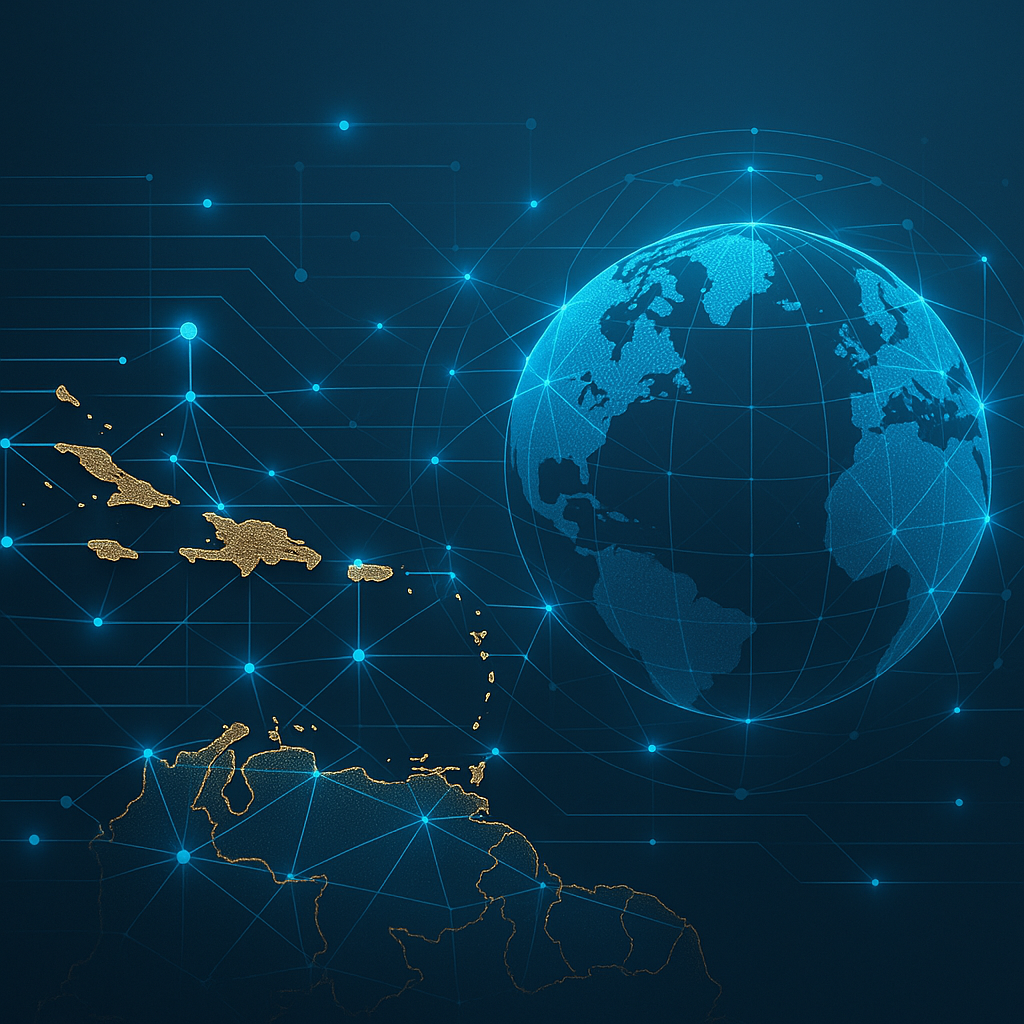In the 21st century, the wealth of nations is no longer measured solely in natural resources or financial reserves. It is measured in data. Health records, tax filings, banking transactions, government communications—data is the fuel of modern economies and the foundation of national security.
Yet in The Bahamas, as in much of the Caribbean, the truth is stark: our data often resides in foreign hands. It is stored on servers thousands of miles away, owned by multinational corporations, and governed by laws that are not our own. That reality forces us to ask: if we do not control our data, do we truly control our future?
For small island nations, data sovereignty—the right to control and protect the information generated within our borders—is more than an abstract principle. It is a matter of survival. What happens if a foreign government can access our law-enforcement records more easily than our own police force? Are Bahamian citizens’ private communications really private if foreign laws can compel disclosure? And why are we comfortable exporting opportunity—sending millions in data-hosting fees abroad—when we desperately need digital jobs at home?
The Bahamas does have a legal framework in place: the Data Protection (Privacy of Personal Information) Act, 2003. It was ahead of its time when introduced, giving citizens rights to access, correct, and erase their personal information, and creating a Data Protection Commissioner to oversee compliance. But more than twenty years later, the digital world has changed. The Act has no requirement for notifying individuals when their data is breached, no obligation for organizations to appoint data protection officers, no provisions for data portability or safeguards around automated decision-making, and limited reach over offshore data processing. In short, it gives us a foundation—but not the fortress we need.
The truth is, our laws are lagging dangerously behind the pace of technology. The 2003 Act was written before cloud computing went mainstream, before globalized data flows became routine, and long before cyberattacks turned into a daily threat. To protect sovereignty today, we need more than yesterday’s safeguards. We need a modern, integrated regime that can stand shoulder to shoulder with the best in the world—and we should be unapologetic about saying so.
What does that look like in practice? First, mandatory breach notifications so citizens and regulators are alerted quickly when their data is compromised. Silence after a breach is not protection—it is negligence. Second, Data Protection Officers for major data handlers in both public and private sectors, embedding accountability and expertise where decisions are actually made. Third, clear cross-border rules that define when and how data can leave Bahamian (or Caribbean) jurisdiction, with enforceable guarantees that our citizens’ data remains protected abroad. Fourth, data portability and digital rights that let individuals move their information between providers, understand algorithmic decisions that affect them, and contest those decisions when necessary. Fifth, stronger enforcement—a properly resourced, independent regulator with audit powers and penalties that deter misconduct rather than price it in as a cost of doing business. And sixth, cybersecurity integration—privacy law cannot stand alone; it must be tied to national cyber standards, sector-specific controls for critical infrastructure, and requirements for incident response and resilience.
Are we building nations that are politically independent yet digitally dependent? If our critical information infrastructure can be accessed, shut down, or manipulated by others, are we truly “free”—or merely free on paper? The Caribbean cannot afford to be a price-taker in the digital economy. In a world where data is the new oil, we must not settle for being mere exporters of raw information while others extract the value.
This is not a call for isolation. We will and should continue to partner globally. But partnership is not surrender. Why should sensitive Caribbean data be stored in New Jersey or London when it could be secured in Nassau, Freeport, Kingston, or Port of Spain? Are our current contracts with cloud providers explicit that we retain jurisdiction, continuity of access, and the right to mirror or localize critical datasets? Who will protect our data tomorrow if we fail to train and empower Caribbean professionals today?
The stakes could not be higher. Our financial services industry relies on confidentiality and trust. Our tourism sector depends on secure, reliable information systems. Our governments need resilient digital infrastructure to serve citizens—especially in times of crisis. A single breach, a foreign legal order, or a geopolitical dispute could disrupt services, shake investor confidence, or compromise our national security. So we must ask ourselves: what price are we willing to pay for convenience today if it means surrendering control tomorrow?
We have faced existential challenges before—colonialism, hurricanes, economic shocks—and overcome them with resilience and unity. The challenge of data sovereignty is no different. Do we wait until a crisis exposes our vulnerability, or do we take bold steps now to safeguard our digital independence? Do we allow others to write the rules for our data, or do we claim the authority to govern our own digital destiny?
The choice is ours together.
Where do we begin?
- Build Regional Data Centers. Keep our most sensitive government and commercial data within Caribbean jurisdiction, with sovereign failover and disaster-recovery capabilities. A Caribbean-owned digital backbone is the foundation of sovereignty.
- Modernize the Law. Update the 2003 Act into a GDPR-class framework: mandatory breach notifications, Data Protection Officers, processing registers, data portability, automated-decision safeguards, explicit cross-border transfer rules, and a better-resourced, more independent regulator with real audit powers and meaningful penalties. Link this to a national cybersecurity regime with sector-specific standards so privacy and resilience reinforce each other.
- Invest in Our People. Create scholarships, apprenticeships, and certification pipelines in cybersecurity, cloud engineering, and data governance. Prioritize local firms in public procurements where feasible, and require knowledge transfer in foreign contracts. Sovereignty is not only about infrastructure—it is about having the talent to protect and grow it.
This is how we reclaim sovereignty in the digital age: one law, one server, and one skilled citizen at a time.
